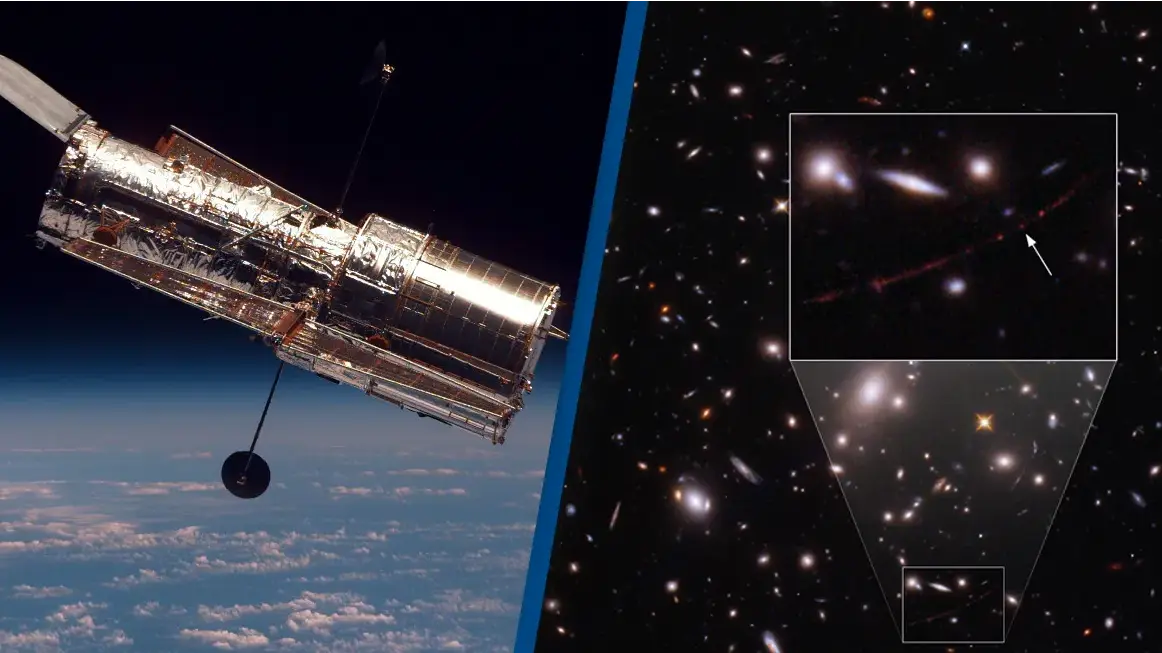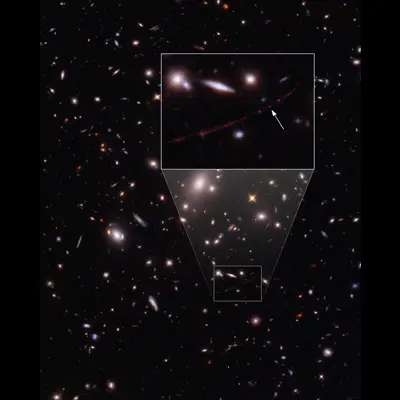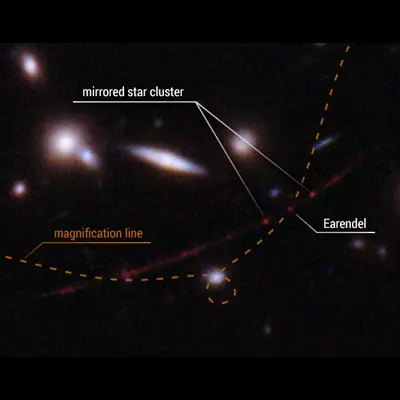
The Hubble Space Telescope has captured images of the farthest star ever seen, in what NASA has described as a 'record-breaking discovery.'
The star, which existed in the first billion years after the big bang, is the farthest individual star ever seen to date, breaking the previous record set in 2018 when the Hubble located a star dating back to when the universe was four billion years old.
Light from the star, named Earendel, has taken a staggering 12.9 billion years to reach Earth. The finding is especially remarkable as it is just one individual star, with the only previous light spotted from such a distance having come from clusters of stars inside some of the universe's earliest galaxies.

Advert
At 50 times the mass of our Sun and millions of times as bright, Earendel is believed to also be one of the biggest stars ever discovered.
However due to the sheer distance, the sighting was only made possible by 'natural distortion' caused by a galaxy located between us and the star, which effectively acted as a magnifying glass to amplify the light from Earendel, making it visible to the Hubble telescope.
In a press release, NASA said the discovery 'extends our understanding of the universe' while also opening up new areas of research for the agency's newly launched James Webb Telescope, which is capable of viewing objects in space too faint or distant for the older Hubble Space Telescope, with Earendel expected to remain highly magnified for years to come.

"Studying Earendel will be a window into an era of the universe that we are unfamiliar with, but that led to everything we do know. It's like we've been reading a really interesting book, but we started with the second chapter, and now we will have a chance to see how it all got started," said Brian Welch, an astronomer at Johns Hopkins University in Baltimore who led the study into the star.
According to Welch, the team behind the discovery are not resting on their laurels, either.
"With Webb, we may see stars even farther than Earendel, which would be incredibly exciting," he said. "We'll go as far back as we can. I would love to see Webb break Earendel's distance record."
If you have a story you want to tell, send it to UNILAD via [email protected]
Topics: Space, NASA, Technology
